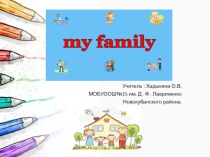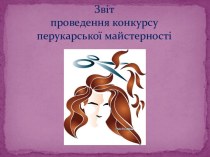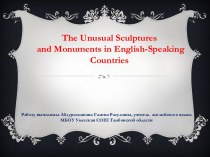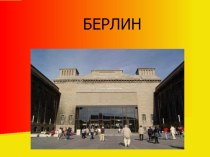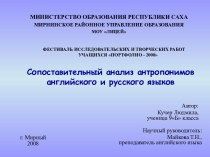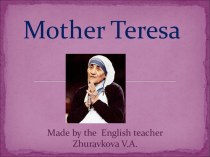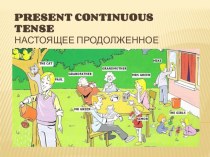- Главная
- Разное
- Бизнес и предпринимательство
- Образование
- Развлечения
- Государство
- Спорт
- Графика
- Культурология
- Еда и кулинария
- Лингвистика
- Религиоведение
- Черчение
- Физкультура
- ИЗО
- Психология
- Социология
- Английский язык
- Астрономия
- Алгебра
- Биология
- География
- Геометрия
- Детские презентации
- Информатика
- История
- Литература
- Маркетинг
- Математика
- Медицина
- Менеджмент
- Музыка
- МХК
- Немецкий язык
- ОБЖ
- Обществознание
- Окружающий мир
- Педагогика
- Русский язык
- Технология
- Физика
- Философия
- Химия
- Шаблоны, картинки для презентаций
- Экология
- Экономика
- Юриспруденция
Что такое findslide.org?
FindSlide.org - это сайт презентаций, докладов, шаблонов в формате PowerPoint.
Обратная связь
Email: Нажмите что бы посмотреть
Презентация на тему по английскому языку на тему Королева Виктория.
Содержание
- 2. London
- 3. Thousands of people come everyday to watch
- 4. Buckingham Palace
- 5. People can see not only the ceremony
- 6. So we decided to know everything about
- 7. Queen Victoria was one of the most
- 8. Alexandrina Victoria was born on the twenty-fourth of May 1819 in Kensington Palace in London.
- 9. Princess Victoria Maria Louisa of Saxe-Coburg Prince Edward, Duke of Kent
- 10. The princess was named Alexandrina after Emperor
- 11. Victoria’s father died when she was eight
- 12. She was taught only German until she
- 13. As well as learning languages, Victoria studied history, geography, arithmetic, drawing, music and the Bible.
- 14. She grew up in Kensington Palace.
- 15. Victoria inherited the throne of Great Britain at the age of 18,
- 16. after the death of her uncle William the fourth who had no legitimate children.
- 17. Her coronation took place in June 1838
- 18. Queen Victoria first met her future husband,
- 19. Albert and Victoria felt mutual affection, fell in love with each other
- 20. and some years later in February 1840 they were married
- 21. in the Chapel Royal at St. James’s Palace, London.
- 22. For the next 20 years they lived in harmony.
- 23. Albert became not only the Queen’s companion,
- 24. In her early days Victoria was known
- 25. Albert taught Victoria that she should have
- 26. Victoria and Albert were really happy, they had nine children:
- 27. The Princess Victoria, Princess Royal (1840 -1901)
- 28. The Prince Albert Edward, Prince of Wales, later King Edward VII (1841 – 1910)
- 29. The Princess Alice (1843 – 1978)
- 30. The Prince Alfred, Duke of Saxe-Coburg and
- 31. The Princess Helena (1846 – 1923)
- 32. The Princess Louise (1848 – 1939)
- 33. The Prince Arthur, Duke of Connaught and Strathearn; Field Marshal, Governor General of Canada (1850 –1942)
- 34. The Prince Leopold, Duke of Albany (1853 – 1884)
- 35. The Princess Beatrice (1857 – 1944)
- 36. But in December 1861 Prince died of
- 37. at Windsor Castle.
- 38. Victoria mourned the death of her husband
- 39. One important step to popularity was the
- 40. The democratic British liked and respected the
- 41. The Victorian era was at the height
- 42. Victoria’s reign was also marked by a
- 43. At the end of Queen Victoria’s reign,
- 44. It was also a largely peaceful reign.
- 45. Queen Victoria was also popular in Europe.
- 46. Among her grandchildren was Alexandra, her most
- 48. Queen Victoria died on the 22nd of January 1901 at the age of 81
- 49. at Osborne House on the Isle of Wight.
- 50. She outlived 3 of her 9 children, 11 of her 42 grandchildren.
- 51. Queen Victoria remains the most commemorated British
- 52. the Victoria Memorial outside Buckingham Palace,
- 53. monuments and statues in Australia,
- 54. Canada,
- 55. New Zealand,
- 56. India
- 57. and in other countries.
- 58. Many institutions, parks, squares, hospitals bear her name.
- 59. The British should be proud of such a glorious Queen.
- 60. Скачать презентацию
- 61. Похожие презентации
London
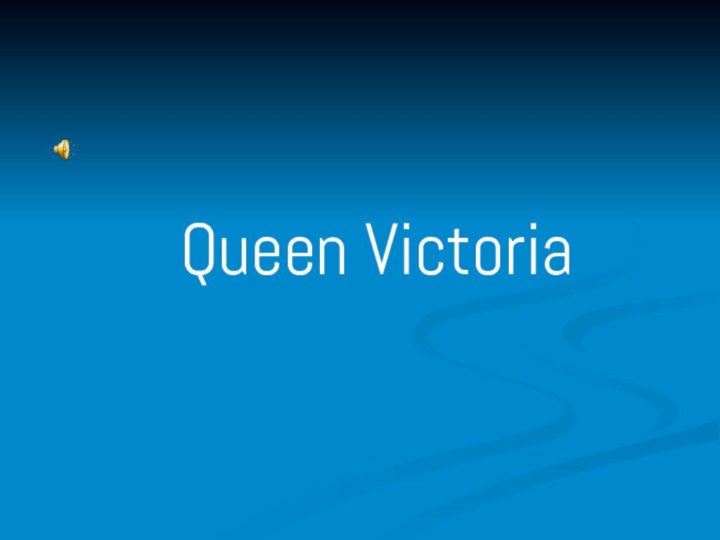
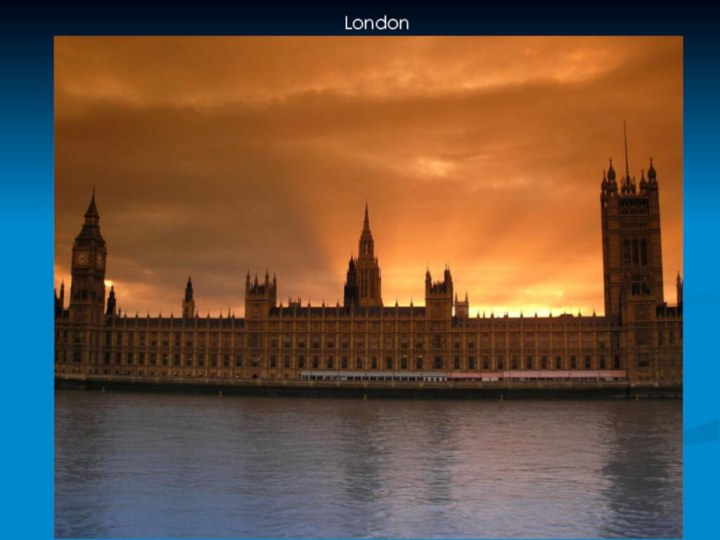
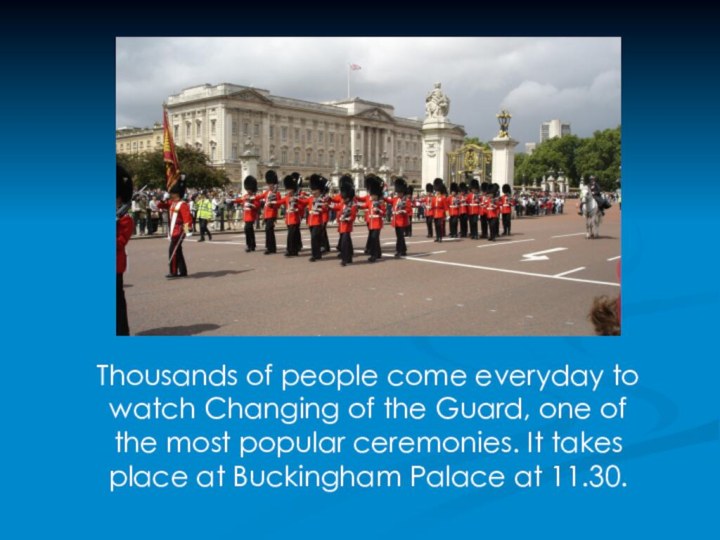

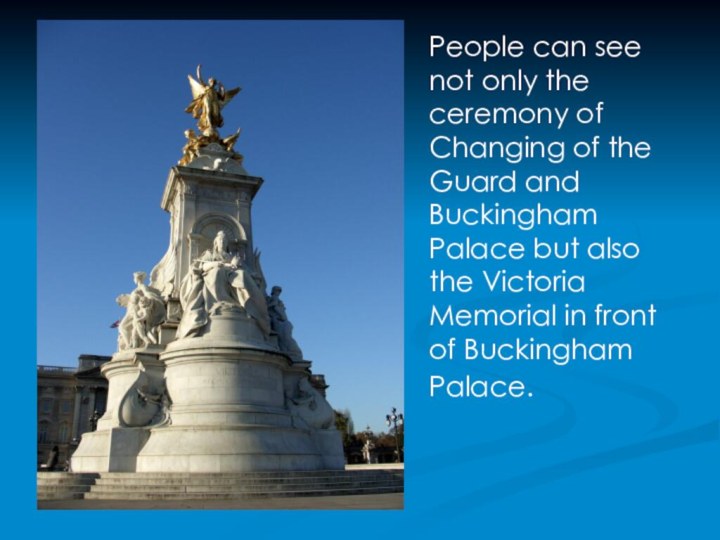


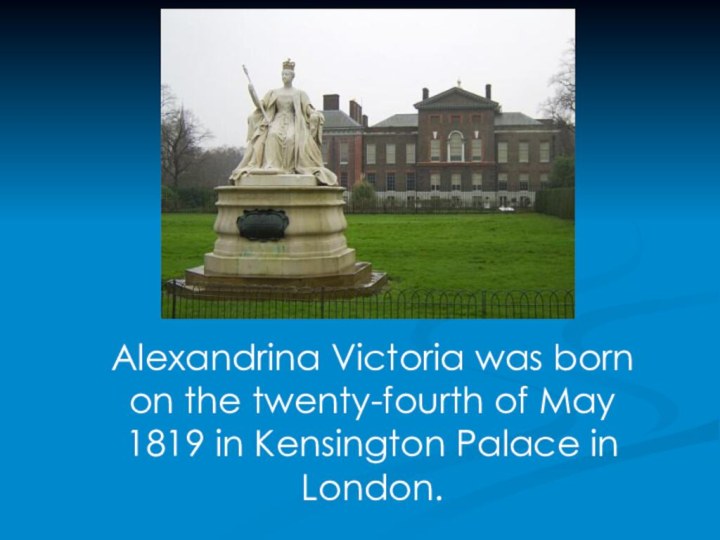

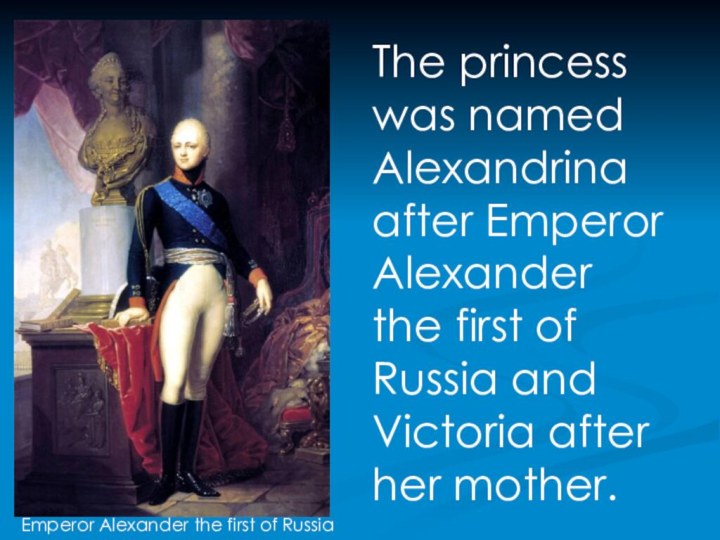
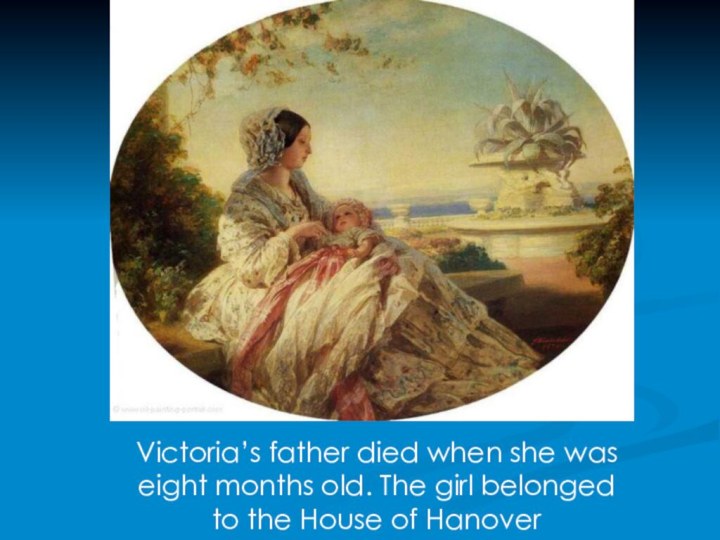


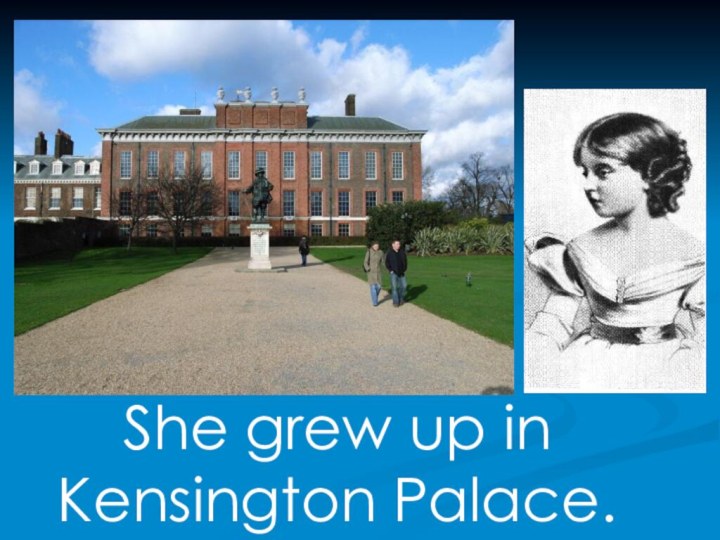
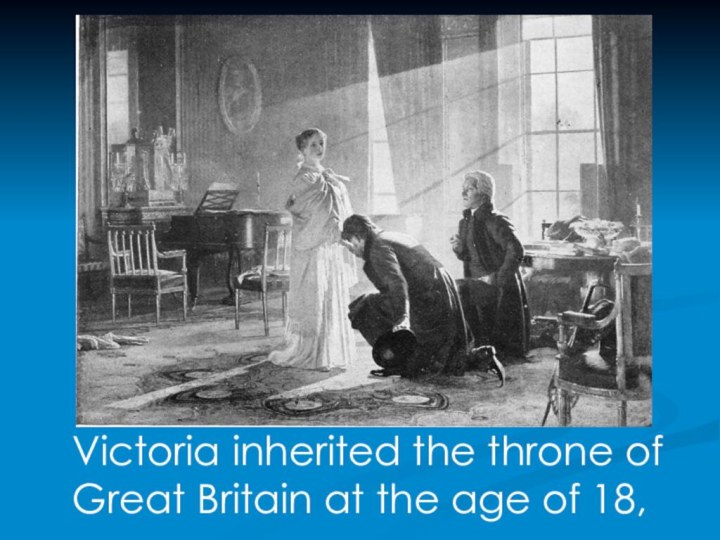
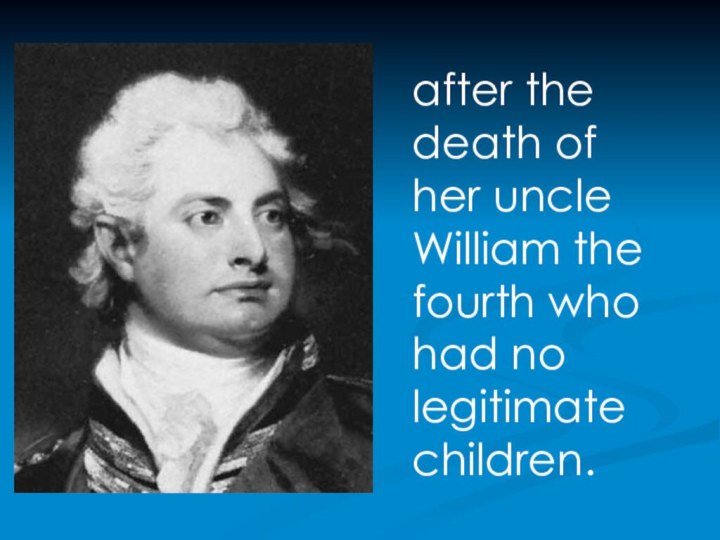
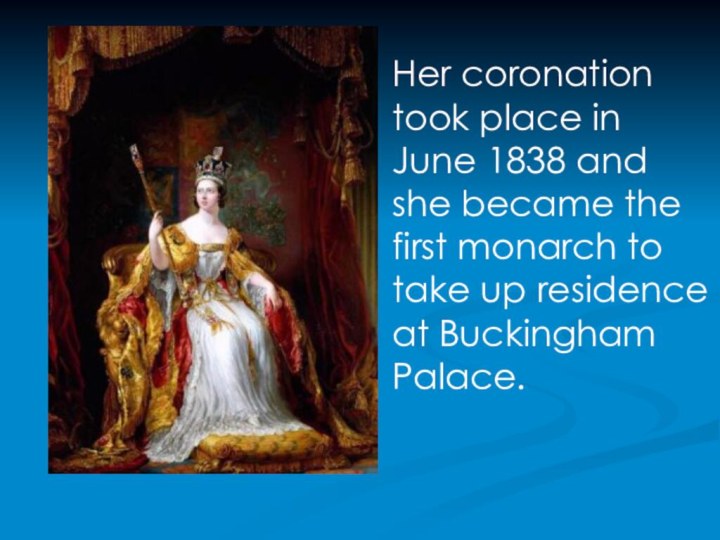
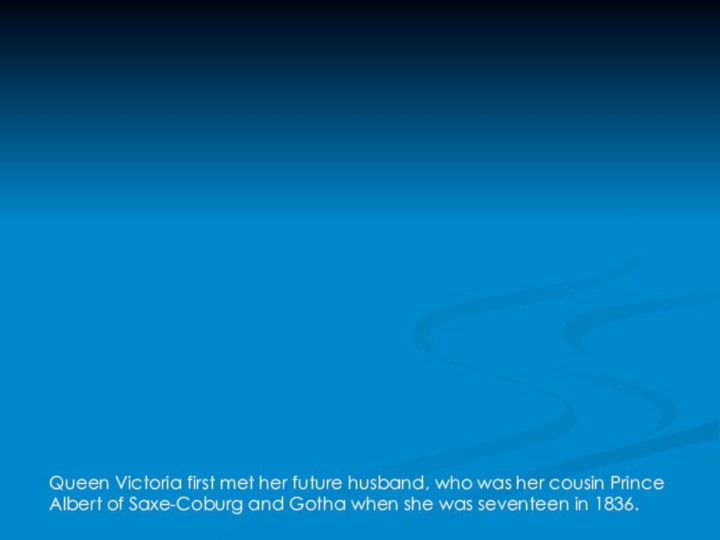
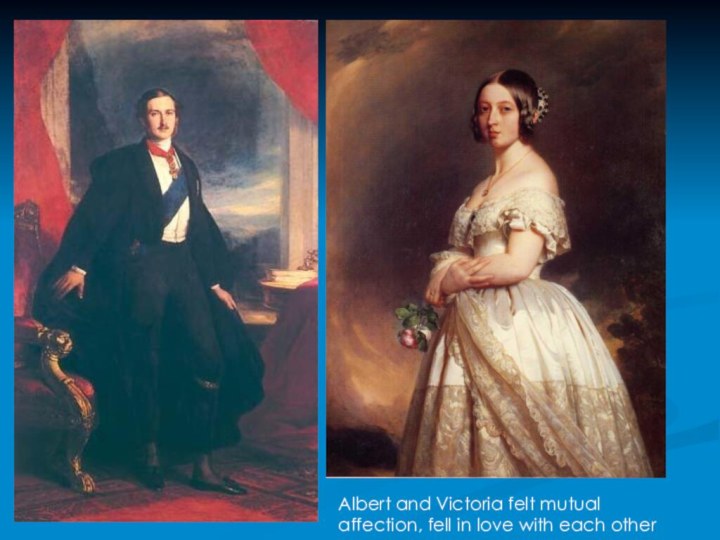

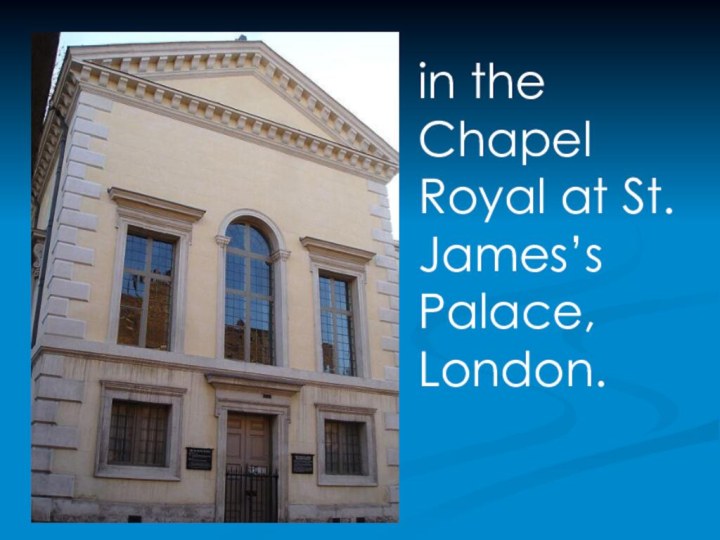

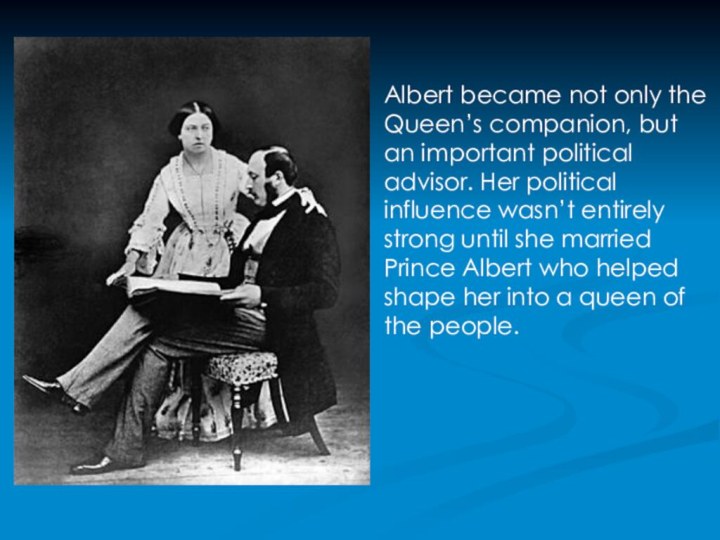
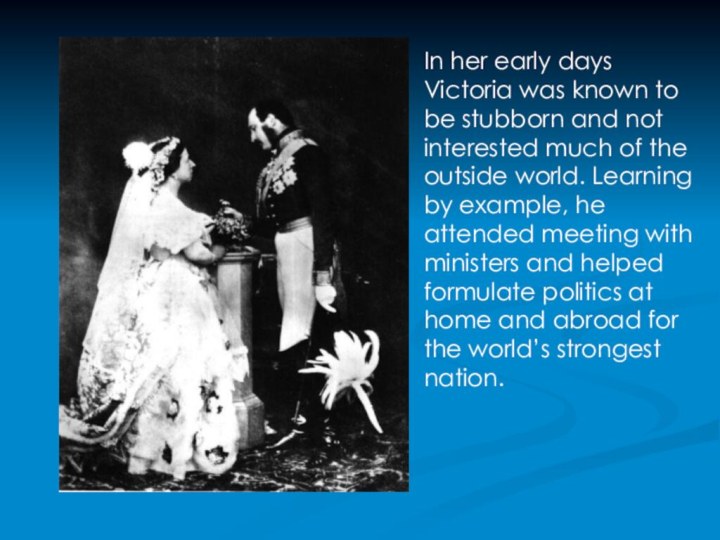
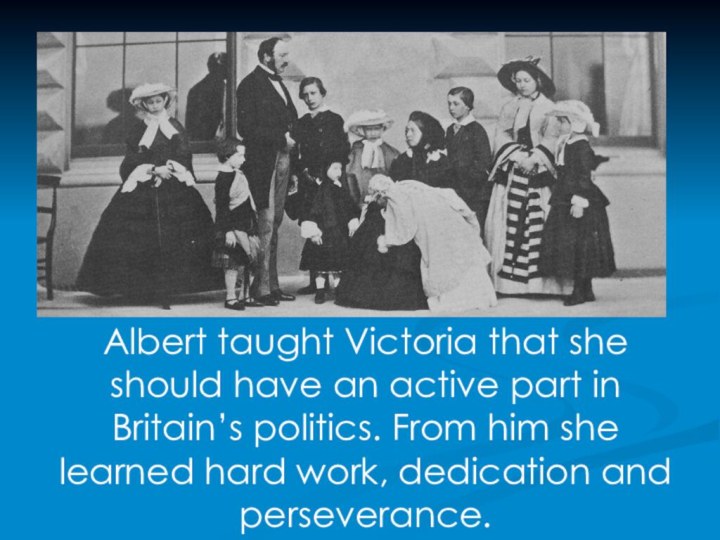
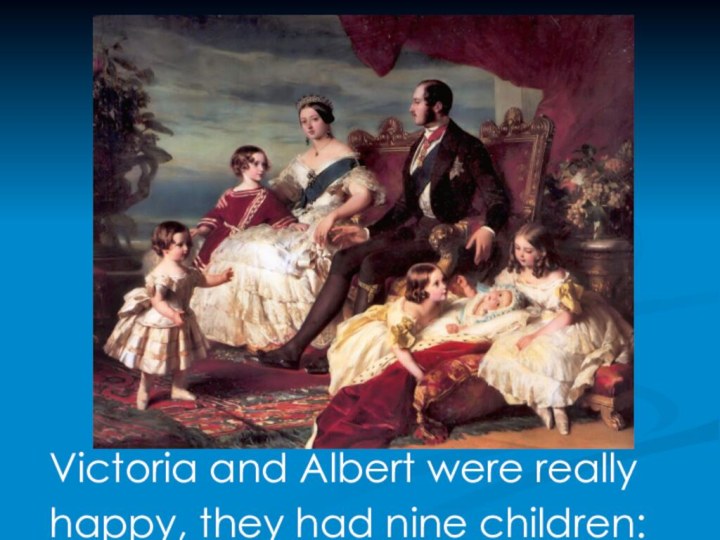



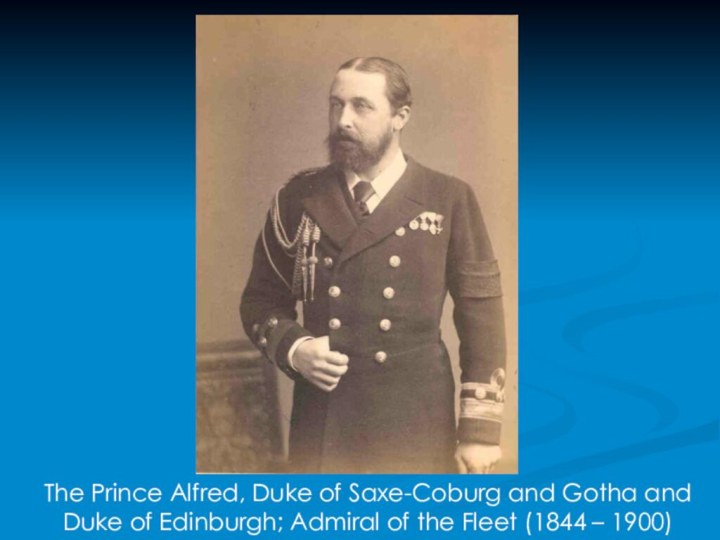
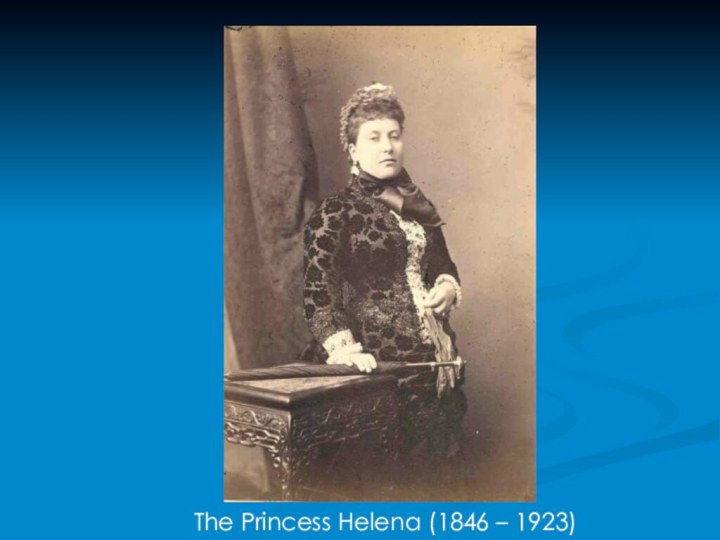

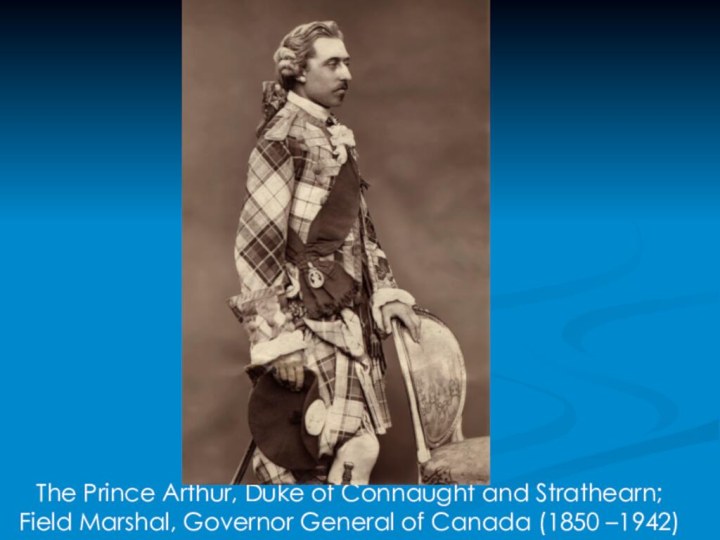
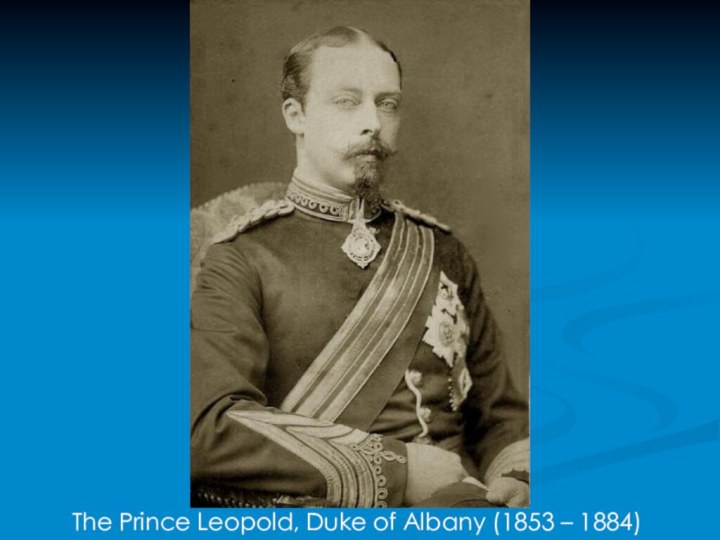



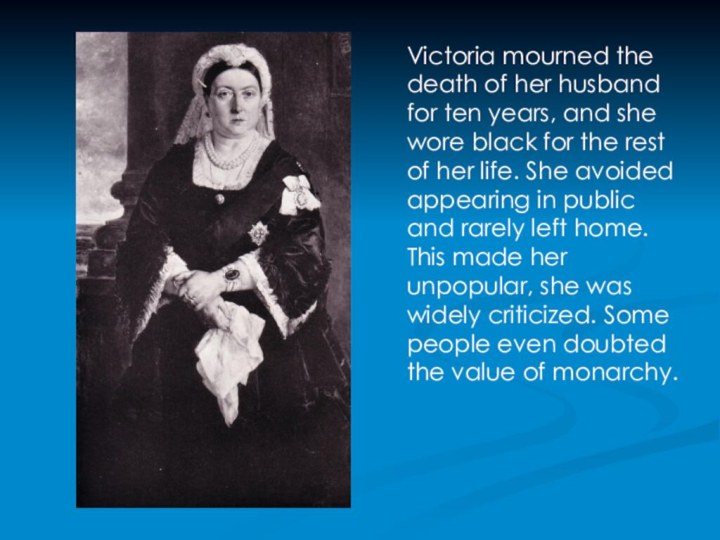

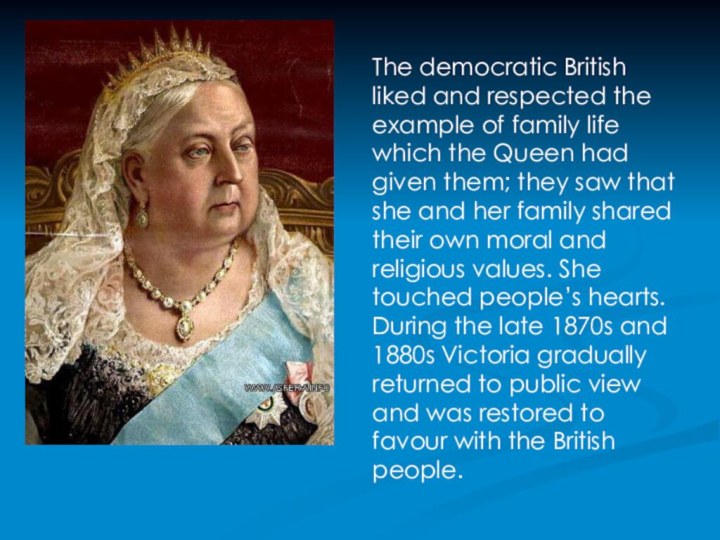


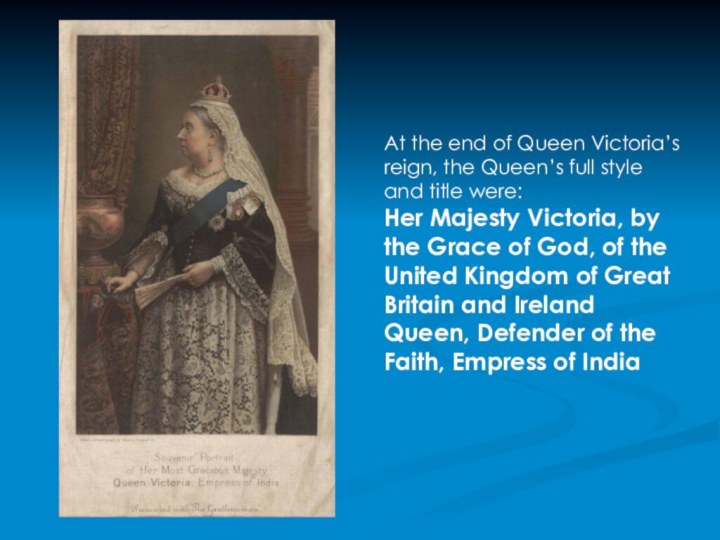
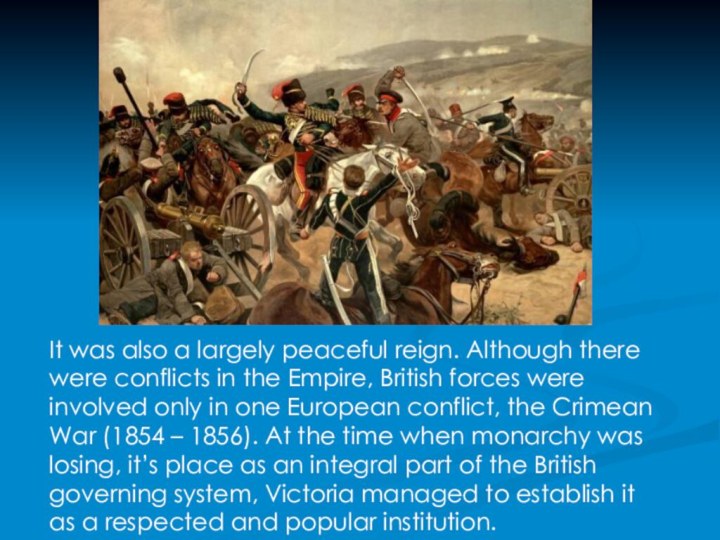

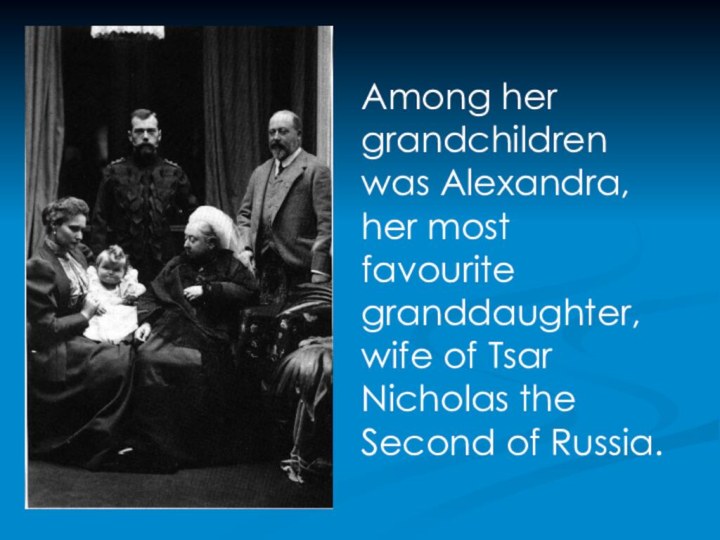







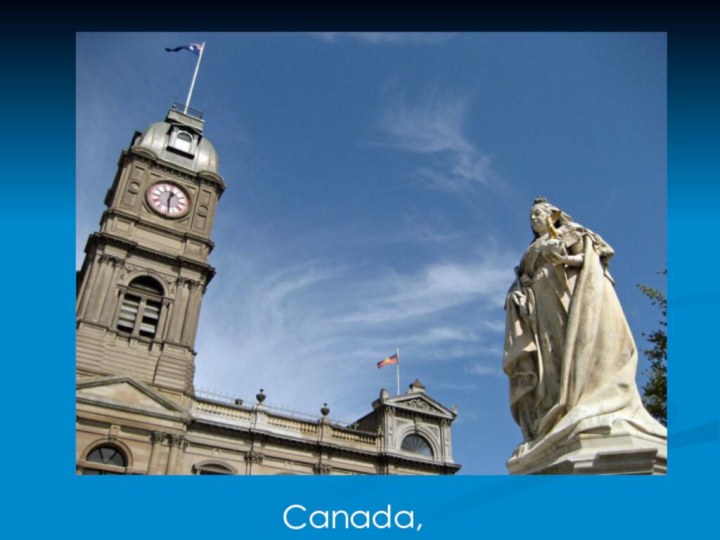

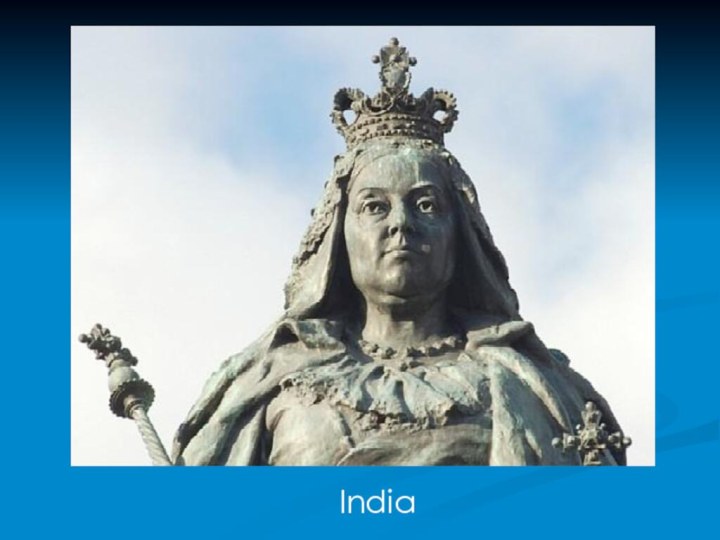

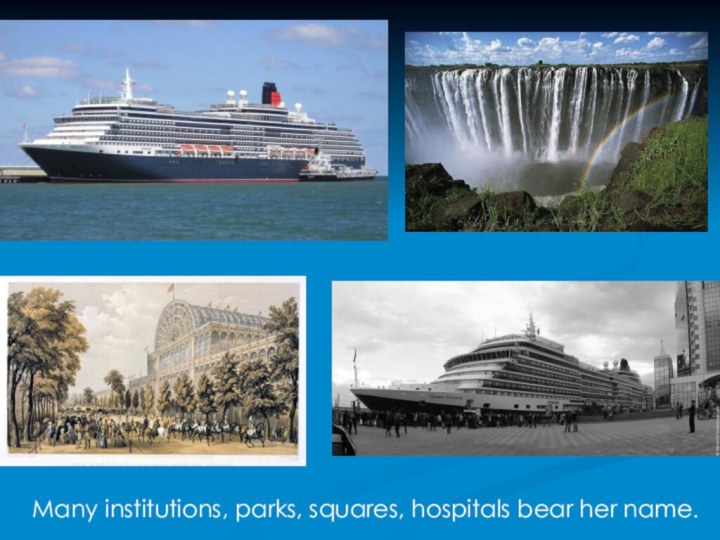
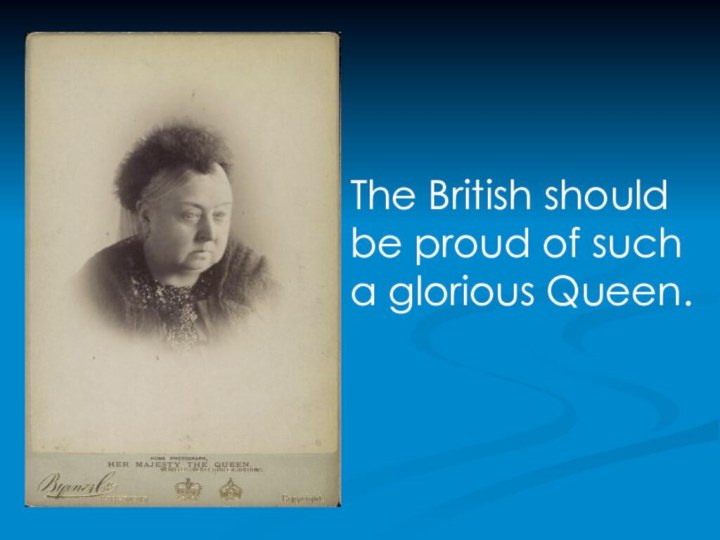

Слайд 5 People can see not only the ceremony of
Changing of the Guard and Buckingham Palace but also
the Victoria Memorial in front of Buckingham Palace.Слайд 6 So we decided to know everything about Queen
Victoria, her popularity among British people, to find out
why people erected this monument.Слайд 7 Queen Victoria was one of the most popular
British monarchs. Her 64-year reign was the longest in
British history and is known as the Victorian era.Слайд 8 Alexandrina Victoria was born on the twenty-fourth of
May 1819 in Kensington Palace in London.
Слайд 10 The princess was named Alexandrina after Emperor Alexander
the first of Russia and Victoria after her mother.
Emperor Alexander the first of Russia
Слайд 11 Victoria’s father died when she was eight months
old. The girl belonged to the House of Hanover
Слайд 12 She was taught only German until she was
three years old. At three she learnt to speak
English and French. Her mother spoke German with her. Her command of English was good but not perfect.Слайд 13 As well as learning languages, Victoria studied history,
geography, arithmetic, drawing, music and the Bible.
Слайд 17 Her coronation took place in June 1838 and
she became the first monarch to take up residence
at Buckingham Palace.Слайд 18 Queen Victoria first met her future husband, who
was her cousin Prince Albert of Saxe-Coburg and Gotha
when she was seventeen in 1836.Слайд 23 Albert became not only the Queen’s companion, but
an important political advisor. Her political influence wasn’t entirely
strong until she married Prince Albert who helped shape her into a queen of the people.Слайд 24 In her early days Victoria was known to
be stubborn and not interested much of the outside
world. Learning by example, he attended meeting with ministers and helped formulate politics at home and abroad for the world’s strongest nation.Слайд 25 Albert taught Victoria that she should have an
active part in Britain’s politics. From him she learned
hard work, dedication and perseverance.Слайд 30 The Prince Alfred, Duke of Saxe-Coburg and Gotha
and Duke of Edinburgh; Admiral of the Fleet (1844
– 1900)Слайд 33 The Prince Arthur, Duke of Connaught and Strathearn;
Field Marshal, Governor General of Canada (1850 –1942)
Слайд 36 But in December 1861 Prince died of typhoid
fever at the age of 42 due to the
primitive sanitary conditionsСлайд 38 Victoria mourned the death of her husband for
ten years, and she wore black for the rest
of her life. She avoided appearing in public and rarely left home. This made her unpopular, she was widely criticized. Some people even doubted the value of monarchy.Слайд 39 One important step to popularity was the publication
of the Queen’s book “Our life in the Highlands”.
The book was the Queen’s own diary of her life with Prince Albert and her family. It delighted the public as they had never before known anything of the private life of the monarch, and they enjoyed reading it. They were impressed by the fact that the Queen wrote about her servants as if they were members of the family.Слайд 40 The democratic British liked and respected the example
of family life which the Queen had given them;
they saw that she and her family shared their own moral and religious values. She touched people’s hearts. During the late 1870s and 1880s Victoria gradually returned to public view and was restored to favour with the British people.Слайд 41 The Victorian era was at the height of
the Industrial Revolution, a period of great social, economic
and technological changes in the United Kingdom. Britain became the most powerful country in the world.The number of people living in Britain more than doubled. Many factories and machines were built, and new towns grew up. Railways, originally built to transport goods, allowed people to travel around the country.
